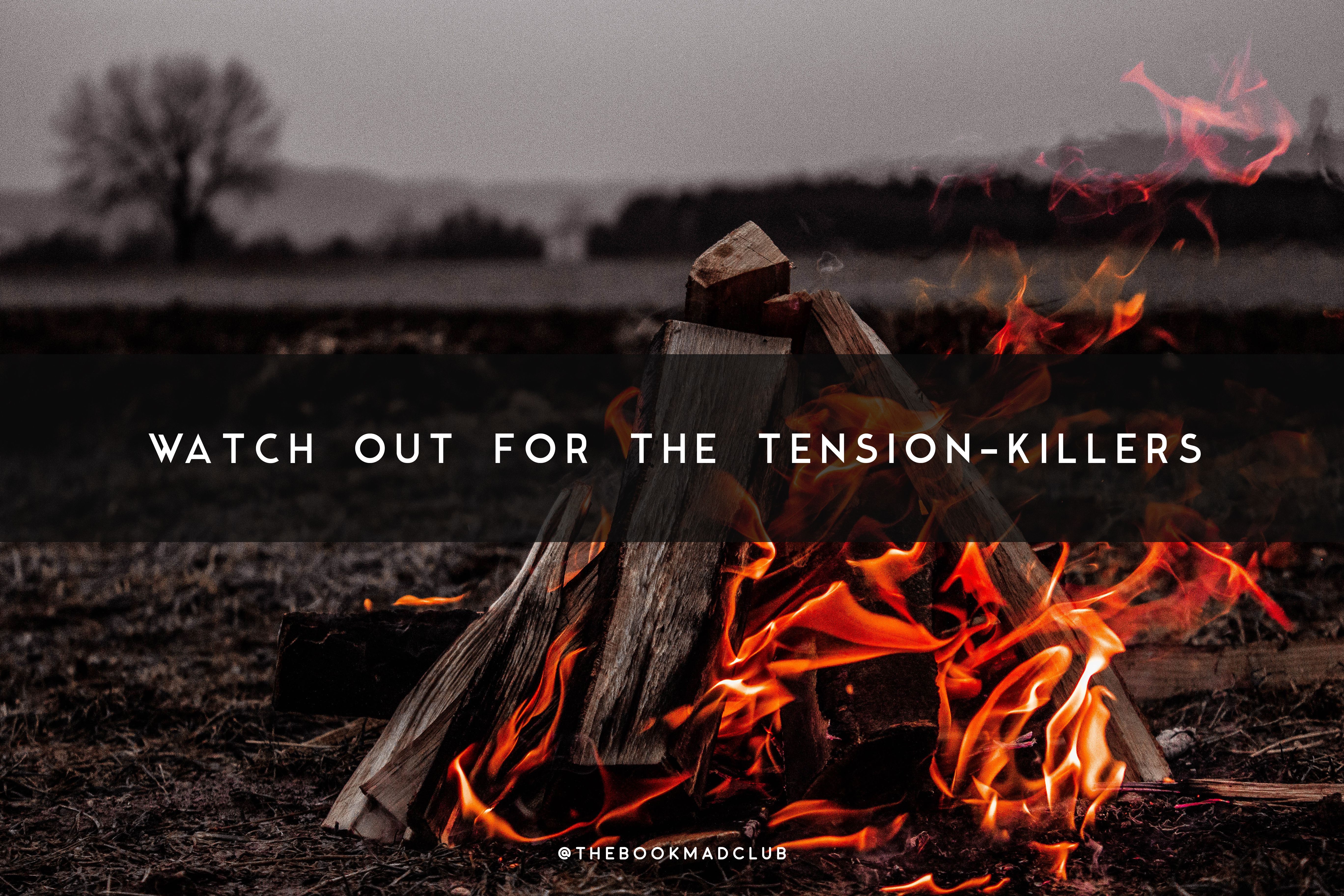Watch Out For The Tension-Killers
Simply put, tension in your story is that little bug that makes your reader keep turn pages, even though it's 2 am and they have to be up by 8.
As a reader, I love to be teased, and sort of tortured, with anticipation. I live for the moments when a book keeps me wondering if the character will make it or not. And as an author, I want to be able to do the same to my readers. I want them to be curious and eager to unfold the pages as the story progresses because they can't not know what's going to happen next.
Here are the most common tension-killers used among aspiring writers:

THINGS ARE FAR TOO EASY FOR THE HERO
You've spent a considerable amount of your life creating this character who is going to be the star of your book, right? You've grown to love him or her so much and a part of you really, really wants to protect them. Well, now, I want you to make them suffer.
Okay, not suffer, but take everything from them and prevent them from getting the one thing they want in the world. Conflict brings true character to light, and if your hero obtains everything they want too soon in the story, then there won't be anything else to fight for. And there won't be anything keeping your readers interested either.
YOUR CHARACTERS GET ALONG EVERY TIME
This tip does not only provide you the opportunity to create sub-plots, but it also makes perfects sense.
Who gets along all the time, anyway? I'm not saying you should make an overly-dramatic reality show out of your novel; but arguments, disagreements, and mistrust create conflict, hence, tension. It will also make your story more authentic since there's probably no one who won't feel related to those fighting scenes.

CONFLICTS RESOLVED WAY TOO SOON
Once disputes are over, and goals are accomplished, there's little to none that you can do to encourage your reader to keep moving through the pages; especially when your character has solved the main problems already.
Always make sure, if your story does call for a conflict to be resolved, which is perfectly fine, make sure you have a new one upon your sleeve.
TOO MANY DETAILS
Today I found myself skipping parts of a book, which I never ever do, just because it had way too many detailed scenes.
If it doesn't move the plot forward, it's best to keep it simple. Leave some blanks for your readers to fill themselves, after all, you are going to want to allow your reader to picture their own version of the story too, right?

In summary, make sure your readers keep questioning themselves. Is the hero getting the girl? Is she going to overcome this? Will he die?
Make them wonder, and most importantly, keep them reading.
Source: inkandquills.com
Image Source: I, II, III
